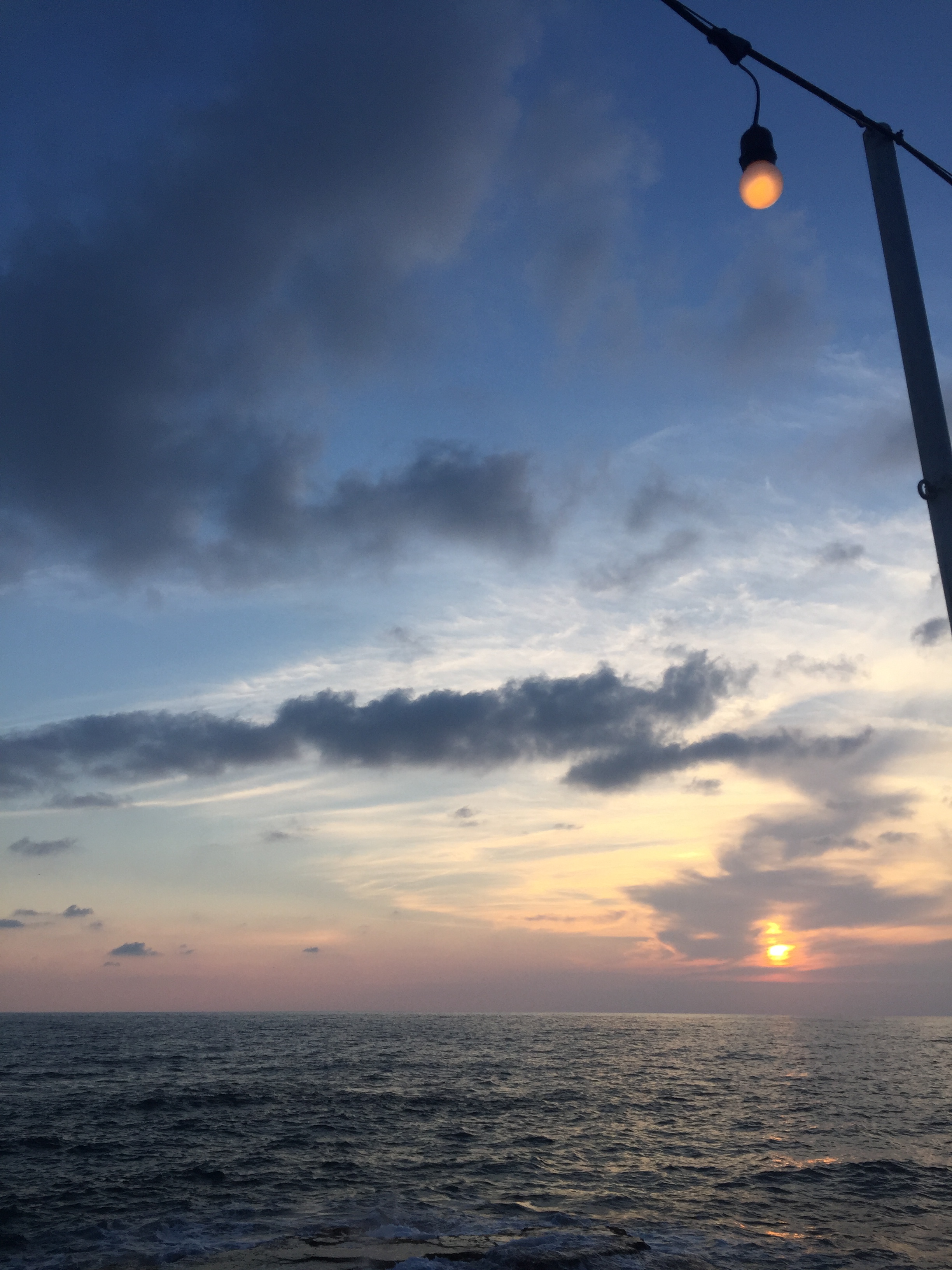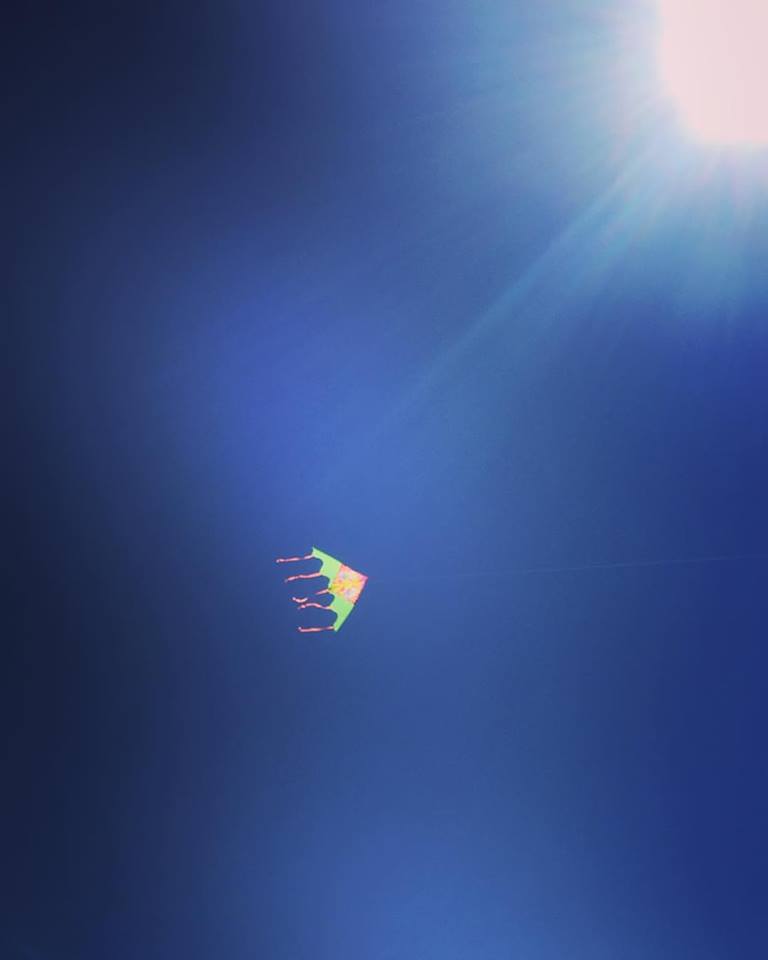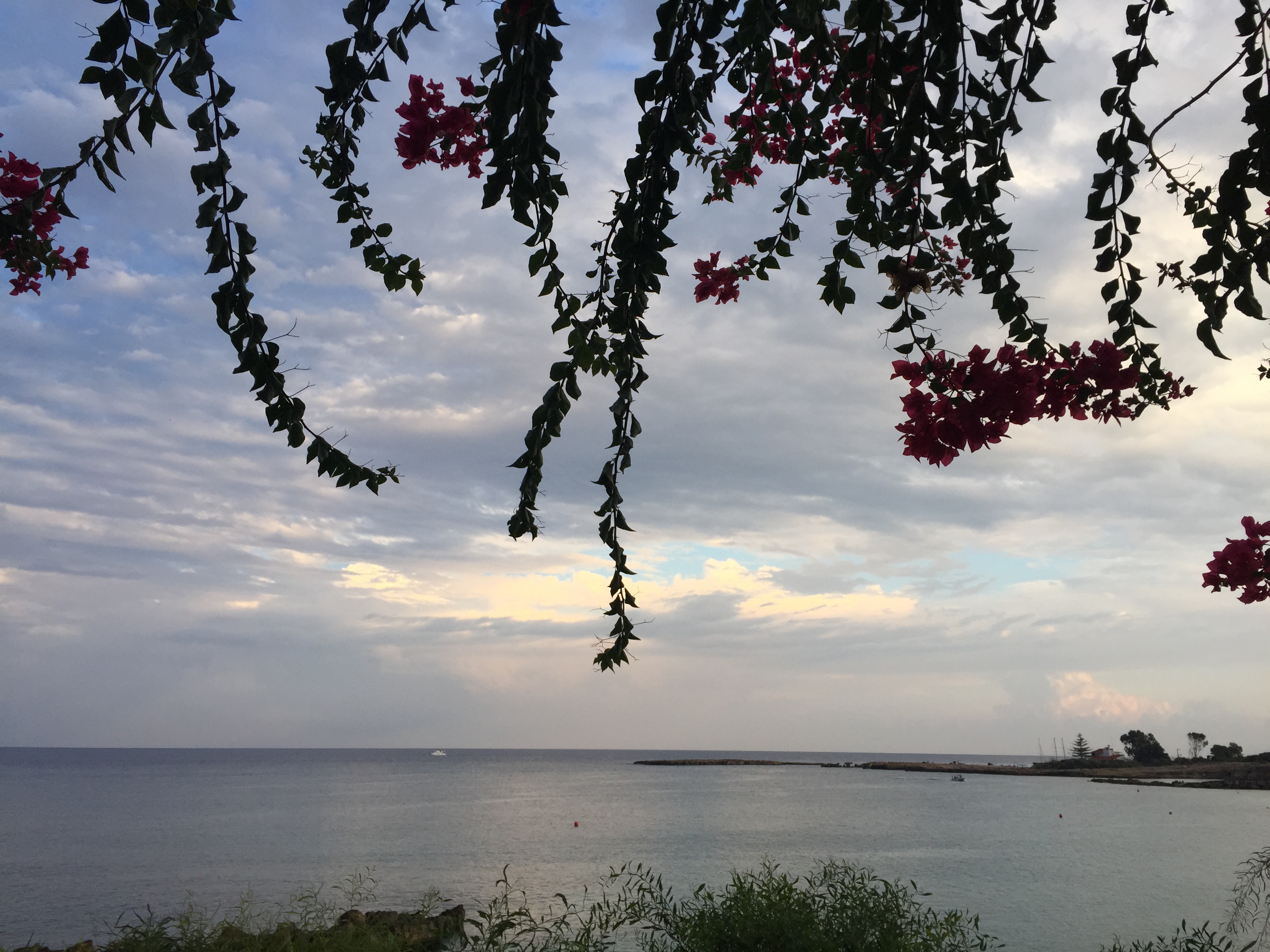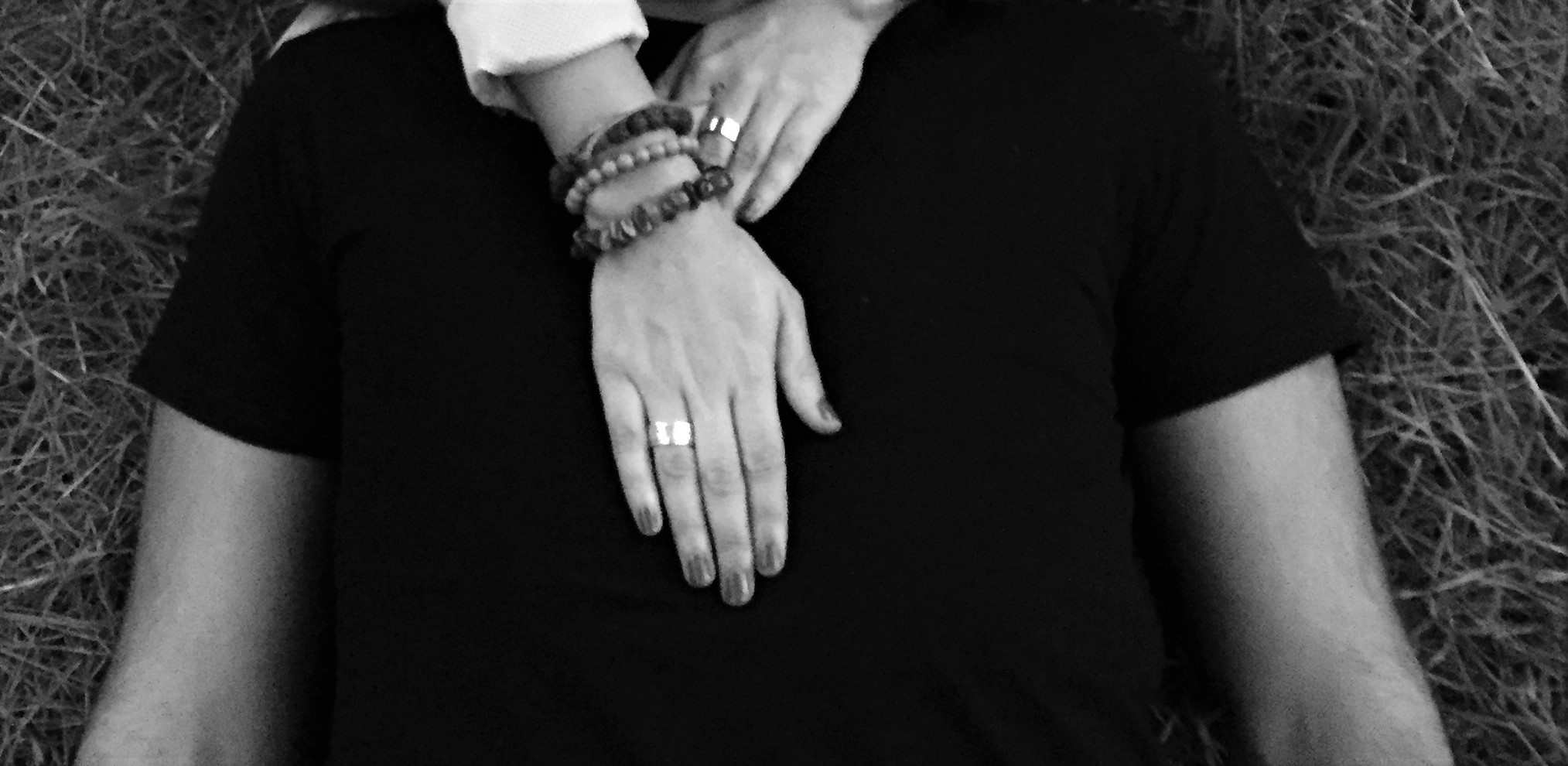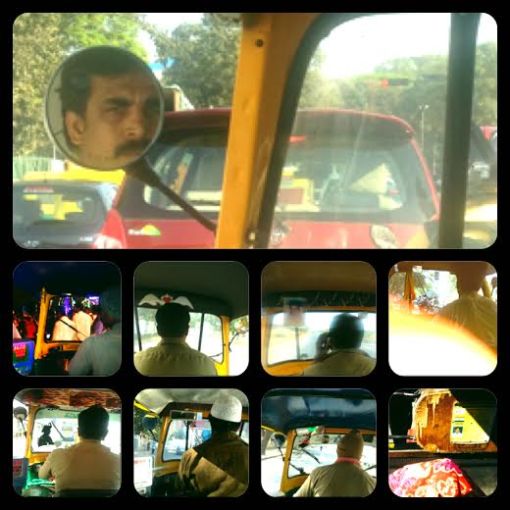Bella,
It is a windy Saturday. I took Tommy on his favorite morning walk. I got him apples from the cocktail bar in Sassine Square and some grapefruit juice to mix with my gin. Tommy loves to watch the Christmas lights dangling from the shops and the buildings. There are fewer this year. They only glitter when the government electricity is on, at most three hours a day. The generator only lights the holy tree in the square. It’s decorated with angel wings this year, a mercy call to the Holy Spirit. You would have loved it. I close my eyes and laugh at the thought of your laugh. How I miss you. Beirut misses you. Tommy misses you. Come back.
Last night I threw a house party. I always find it easier to heal around new faces who know little to nothing about me. After a few glasses, I decided with the help of a guest I vaguely knew to remove the famous painting from the wall, to welcome 2022 with an open heart. The wall actually looks lighter now, warmer. You would be proud. You always wanted me to throw this piece of art or burn it on his doorstep. I have to admit that the thought of it always amused me, but I did like the painting. I could always see myself in the woman featured on that canvas. There, naked, trying to catch her breath in a crumbling city, her red lipstick intact. I was the inspiration for that painting after all, or so he said, yet he managed to hide me in the shadows for years. The therapist had two theories: I castrated him with my strong character, or helped him shine while I remained backstage. Don’t we play both roles in relationships? The supportive and the do-it-all woman? What a vicious doomed cycle! What does your therapist tell you?
It is still eleven in the morning. I fix myself a glass and fall on the sofa to the rhythm of Sabah Fakhri. Since he passed away, I play his track “Khamret el Hobb” on repeat until I fall asleep drunk on love, or should I say: drunk on my longing for love? Sabah’s voice travels inside me. I go to parallel universes, into my past lives. Maybe one in old Damascus, another in Jaffa, and on the hills of Serifos. There, I was betrayed, and there I was worshipped. There I committed suicide. There I was an empress, and there I was a Roman slave. I open my eyes to Tommy’s lick on my eyebrow ring and come back to the warmth of Sabah’s voice.
Do you really think we ought to have one life partner, Bella? I am not really sure I want that anymore. Partners are like seasons. They water the heart in the spring of love then fall off like leaves in the cold, each to heal a sore spot. They give us refuge, they open our sacral chakra. They heal and hurt. On the verge of my thirty-seventh birthday, I came to accept that each relationship damages us; we never fully recover. Melancholia seems like the only constant. Maybe the heart doesn’t have to heal. This is natural physiology: collecting patches of scars, loss, and love. Maybe we ought to create collages of our hearts and sell them as art or artefacts at exuberant prices to European museums. Maybe then, we will heal.
I go to therapy and yet often wonder if healing is an illusion. Aren’t the answers to our pain already known to us?
At night, I stopped adding Perrier to my Tanqueray so the ice cubes melt slowly. Did I tell you I have been dating the same person since you left? It has been five months now. He is a happy boy who makes me smile. Unusual. He talks to plants rather than beings and makes amends with the sun and soil. I go sometimes and see him in his mountain house. I indulge in oneness trips and orgasm to his fingers. He is also a great cook. Last week he made me salmon tacos. I haven’t asked about his past nor about his relationship with his mother. I don’t speak to him about healing nor therapy. I sidelined myself just to see his smile and cuddle with him at night. Tommy is fond of him. He knows he is the cook.
I am embarrassed to go on about my daily rubbish while you try to sleep to the sound of shelling. Are you able to handle the cold nights? Are you eating any warm meals? You seemed pale last time we spoke. I got worried. You moved away from the windows and closed Skype in a hurry. Bella, if you are unhappy, you know you can dump everything and come back home. We are strong women, but acknowledging that we have endured much and need a sense of peace is also strength. We are already successful. We do not need to fight new battles to prove that. Come back. Syria is still a battlezone. I know you were not expecting this when you signed up. I did not think Aden would be that tough also when I went there. I couldn’t survive in Yemen more than two weeks. I slept two full nights in the corridor next to my grab bag with my passport in hand. I can still see the face of the burnt child lying on the sidewalk by the market, and I can still hear the shouting of the gunmen under my building. It brought back memories of our days in Beirut. Our cities seem doomed, tired of our wrongdoings. They wished to vanish, as Beirut did seven times. The Fairies have left us to fight our demons and despots. Our Middle East has become a haven for broken dreams.
How are you holding up there? Is there still no diesel for warm showers in your station? You mentioned vaguely that you made some friends. Send me more details! Have you been sober since you left Beirut? Do you manage to go to Erbil for some rest? When is your next retreat? Your organization should be taking care of your well being and sending you home every now and then! Bella, come back.
My street in Ashrafieh scares me now. The other day while entering the building in a hurry just past midnight, I heard a woman calling me. I didn’t look back. Then the doorbell rang the moment I reached my floor. I froze. My heart raced. I didn’t open. I held on to my phone with my brother’s number on speed dial. I held my breath, locked the doors, and stayed awake for hours. The next day I discovered that it was my neighbour alarming me that I had left my car lights on. I thanked her, and cried. When did the city turn us to anxious, hysterical beings?
Did you see the latest tragic news on the Mediterranean? The death toll has reached a new record high this year. There are countries who have been prosecuting the swimmers who saved refugees at sea. Activists on the flotillas receive death notes on their doorstep. There is a growing rage inside me. Sometimes I see the souls of these Mediterranean travellers wandering at sea while I walk on the corniche. The faces of the street children I couldn’t save and who died on my watch also haunt me.
It was a failure wasn’t it, this program? Did we really believe we could pave new lives for those souls through art therapy sessions and psychosocial support activities? Do you remember Kaissar? I have recurring dreams about him. That I resigned from work to adopt him and broke all humanitarian work rules. True I never wanted children, but Kaissar broke pieces of me I don’t know I can ever mend. Do you really believe in what we do, the humanitarian aid work? I always lectured you and the team about making a difference, that we save lives. But I also always wondered if any of you believed me, if I believed myself. Response plans funded by the same powers who created these crises. Reflecting on all this now, did we do more good or harm? I don’t need validation, nor do I want sympathy. I just want to wash away the guilt that keeps me up at night.
Back to you now. Tell me about your daily routine. Is it the same Syria we always loved visiting? What languages do they speak where you are stationed? Are people really in conflict between each other or is it again some big country’s conspiracy play? Tell me about the women of Kobani. Are they as the legend portrays them: fighters who’ve liberated their city?
Your Internet is never connecting. Your whatsapp checks are never blue. Facetime doesn’t recognize your number anymore. I can barely catch a word or two with you on Zoom and I cannot find you on Facebook anymore! Come back.
Last week I tripped over an advertisement selling flats in the Greek Islands. I always dreamt of resigning from corporate life and even humanitarian work and dedicating the rest of my days to writing. I could go to the South of France, or maybe a village in Italy. But I cannot seem to leave Beirut. Am I addicted to drama? My heart still melts into a nostalgic dumb comfort each time I get drunk on the city streets, or eat mfatqa from Barbour or spinach pies dipped in labneh from Makdessi bakery at dawn. I drink and pretend drinking makes me overly emotional. The truth is, alcohol is a mere excuse. I have been waking up overly emotional for some years now. With each departing friend and each security blow. I can leave the mfatqa and manakish el zaatar about which our fellow expatriates reminisce, but my dilemma is wider. I feel guilty. I assume holding onto what remains might prevent it from collapsing. If I go, will it disappear from the map?
Nayla says that I am a romantic. She was hinting at the Romantic school of the 18th & 19th centuries. Maybe I am. Everything around me is sunsets, the sea, windy winters, Sundays. Beirut with all its distortions, its rainy sewage, and burning corpses is still romantic. And what if I am romantic? Do I need therapy for that too?
Tommy fell asleep on my feet under the yellow cover. The electricity is back on and I need to order some food. I feel lucky since they switched our salaries to dollars. Privileged to have the luxury to reflect on my existential dilemmas such as the ones in this letter.
Do you notice, Bella, that the holidays are lonely? I need to trip on magic truffles again, I need to believe again that I am alive and breathe happiness into my lungs. Last time, I saw myself as an avatar traveling from one life to another, becoming a beautiful tree. I heard my soul’s mission: to make people’s lives softer. That is my calling. And here I am in Beirut, trying. Maybe my animal spirit, a baby elephant, would help soothe hearts and heal bullied souls. I can adopt one. It will make magic. We need magic. Maybe then I can convince you to come back. Although coming back now is losing the self, sanity, physical rest. Maybe we ought to consider a few years in the Peloponnese. Restore sanity there or plan a revolution. We tan and sip Mastiha on sandy beaches while we wait for the waves to drown Beirut for the eighth time. Only then maybe we can resurrect to the life we want.
The electricity is out again. Tommy is impatient for his walk. I send you my heart enveloped in kisses.
Stay warm. Come back. We either pack and leave or succumb to this madness together. What matters is togetherness, right?
Bhebbik,
Sisi
Beirut, December 31, 2021
Published initially with Rusted Radishes- edition Letters and Liminality, 2022





